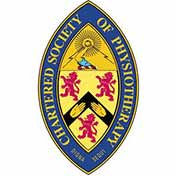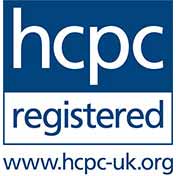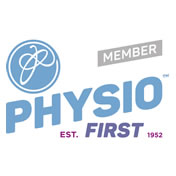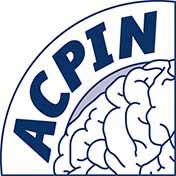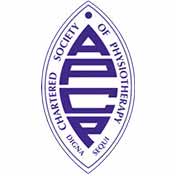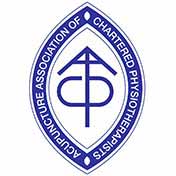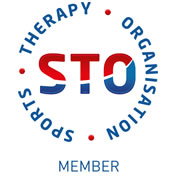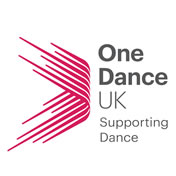Physiotherapy can play a vital role in the prevention and management of the physical discomforts and problems that can arise from the way in which the body adapts and changes during pregnancy and after childbirth.
Hormonal changes, altered body shape and weight increase can place abnormal loading stresses on parts of a woman's body, which can lead to significant discomfort and altered function, with even basic tasks such as sitting and walking.
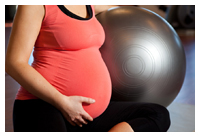 Common physical problems experienced during pregnancy include low back pain, pelvic pain, upper back pain, rectus diastasis, carpal tunnel, bladder leakage and morning sickness.
Common physical problems experienced during pregnancy include low back pain, pelvic pain, upper back pain, rectus diastasis, carpal tunnel, bladder leakage and morning sickness.
Post-natally, back and pelvic problems can continue due to the soft tissue and joint changes that have occurred during pregnancy, and due to the continued presence of relaxin in the body during the post-delivery period and whilst breastfeeding. Postures adopted by new mums when picking up their baby, leaning over to change nappies and when breastfeeding can contribute to the incidence of joint and muscular pains following childbirth.
Bladder leakage can also persist after childbirth due to the weakening and stretching of the pelvic floor muscles during pregnancy and labour. Both Caesarian section and vaginal deliveries can significantly weaken the pelvic floor muscles and this, coupled with the stretching of this muscle group that occurs during pregnancy can cause the pelvic floor to struggle to 'fire-up' and contract following delivery, leading to persistent lower back pain, sacro-iliac joint dysfunction and urinary stress incontinence.
How can physiotherapy help new mums and mums-to-be?
- Advice and education on issues such as posture, back care, lifting and carrying your baby, and on how the body changes both during and after pregnancy.
- Alleviate joint pains for example, back and pelvic pains associated with pregnancy and following childbirth, using a core stability training programme designed to help support the spine and other joints.
- Massage/soft tissue release for tight and overactive muscles, particularly around the spine, in response to the altered body shape and abdominal weakening
- Pelvic floor strengthening to help give support to the uterus, help with bladder leakage, and facilitate an easier labour experience (yes, it's true!).
- Alleviate morning sickness using safe and effective acupuncture techniques
- Provide speedier post-labour recovery by assisting with muscle and joint recovery (as described above) but also by facilitating weight loss post-pregnancy and ensuring a safe and timely return to sports and hobbies.
The importance of pelvic floor muscles:
- What are they?
The pelvic floor is a group of muscles that works like a 'sling', running from the coccyx at the back, between the legs through to the pubic bone at the front of the pelvis. They are deep, internal muscles that sit in the basin of your lower pelvis and support and brace the bladder, bowel and uterus from below. They also work together with the deep abdominal muscles protecting the spine (like a corset). - During pregnancy:
The increasing weight and pressure of the growing baby, along with the release of the hormone relaxin, contribute to the overstretching of these muscles and the result can be reduced pelvic and spinal stability and bladder leakage (urinary stress incontinence). - Post pregnancy:
This muscle group can remain overstretched and inactive and therefore provides little support to the spinal column, pelvic joints or the bladder.
It is important to commence pelvic floor exercises as soon as you discover that you are pregnant in order to maintain as much strength as possible throughout your pregnancy. It has been proven that a stronger pelvic floor reduces the risk of joint pains and stress incontinence, but also facilitates a stronger and speedier labour!
Physiotherapy can help to provide a healthier and more enjoyable pregnancy experience a safe and speedy return to 'normal' so that you can enjoy your baby and your experience as a new mum.
At PEAK Physiotherapy Limited we can teach you how to activate the important pelvic floor muscles and individually design a core stability programme that can improve your pregnancy experience and help you get back to the activities you love following the birth of your child.
We are experienced in educating new mums and mums-to-be about what to expect as their bodies continually change throughout their pregnancy, and can advise how to deal with any physical problems as they arise.
Often, the specifics of ante and post-natal musculoskeletal (MSK) changes are not taught as part of your routine ante and post-natal classes. Physiotherapists are highly trained MSK professionals with in-depth knowledge and skills to address MSK issues as they arise during and after pregnancy and we are delighted to be able to offer such specialist ante and post-natal services.
Call us to enquire about how we can help you to enjoy a more comfortable pregnancy and an active life as a new mum! For further information regarding our ante and post-natal services, telephone our Clinical Director Sarah Joice on 07908 684441.
We are also proud to support and to be associated with The Pelvic Partnership, www.pelvicpartnership.org.uk, helping women across the country with pregnancy-related pelvic girdle pain (PGP).

